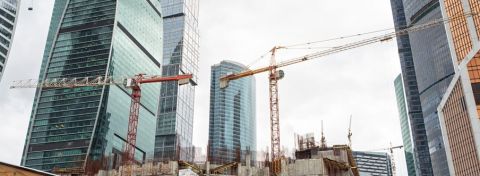Clients with responsibilities for local growth and spatial development – whether local authorities, Mayoral Combined Authorities, local partnerships (of many forms), or devolved administrations – are a major focus for our research, policy analysis and feasibility and impact assessment studies.
What makes for sustainable and inclusive growth at a local level? What helps sectors and clusters to thrive or stall over time - and how do workforce skills play into this? How does the performance of cities – and city-regions – differ from that of towns and rural areas? What does productivity really mean at a local level? What are the implications of ‘anywhere jobs’ for local economies in post-pandemic Britain? How can approaches to local growth also address issues linked to worklessness and economic inactivity? What factors reinforce strongly performing places - and what leads to decline? How does the functioning of particular local economies link to wider national priorities, including in relation to both productivity improvements and overall economic growth?
In response to questions like these, key themes have long been the linkages between economic conditions, infrastructure, commerical and residential development, key businesses and education and research institutions, employment and workforce engagement. These 'factors' are not new, but relationships between them are evolving very quickly - particularly in the context of wider and deeper devolution. Digital technologies have changed the suite of local possibilities; boundaries between ‘home’ and ‘work’ are increasingly blurred with implications for how places function; culture and creativity are increasingly central to place-making; reducing barriers to work is a critical concern; local responses to the imperatives surrounding Net Zero are important; and the significance of wellbeing and other broader metrics of economic and social vitality is also increasingly recognised.

Local economies are constantly changing as relationships to 'place' become both deeper and more variable, not least as international linkages also evolve. And these issues increasingly need to be understood and addressed alongside devolution journeys – and in some cases, local government reorganisation.
We work very closely with local authorities, Mayoral Combined Authorities, devolved administrations and wider partners and stakeholders to help to develop effective place narratives and to consider 'how to intervene well'. We conduct incisive but accessible research to provide critical insights as to how local economies function, and we work closely with our clients to think through effective policy responses. We draft strategies and action plans; we prepare funding bids; and we both develop and appraise business cases. Throughout, we seek to build capacity and confidence – leaving our clients with far more than a consultancy report.
Project Examples
-
Economic Geographies of the West Midland (West Midlands Combined Authority)
-
Life sciences in Hertfordshire (Hertfordshire LEP)
-
Studies on the evolution of the High-Performance Technology and Motorsport Cluster and Bristol-Bath Innovation Cluster
-
Evaluations of place based interventions including the Rural Growth Network Pilot Initiative, Cultural Destinations and Next Generation Broadband Wales Programme
-
Commercial Property: Market Analysis and Potential Interventions (Welsh Government)
-
Dudley Regeneration Strategy (Dudley Metropolitan Borough Council)
-
Brownfield Development guidance (Homes England)
-
Homes England Strategic Research, Economics and Evaluation Framework 2024-28 (Homes England)
-
Comparing university-centred ecosystems in the UK and the rest of Europe (Research England)
-
Exploring research and innovation (R&I) and place (UKRI)
-
City, Devolution and Growth Deal Gateway Reviews (MHCLG)




